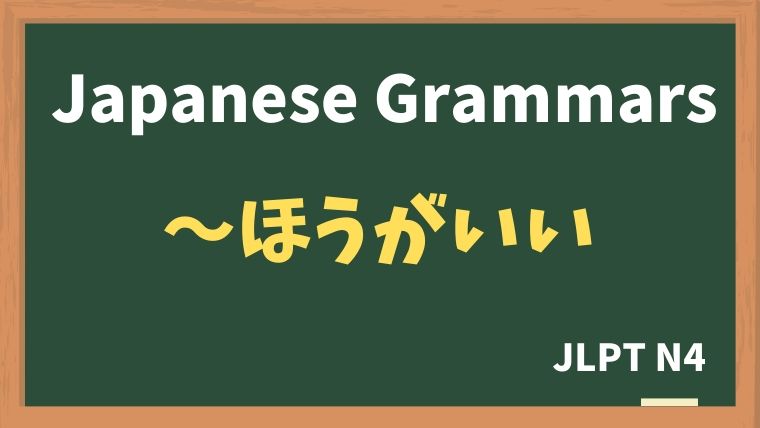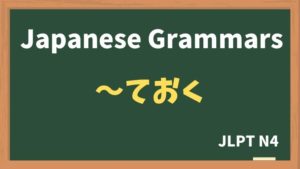
Explanation:〜ほうがいい
fa-check-circleMeaning
"had better"
This sentence pattern is used to give advice or give suggestions. This has the nuance that if the listener doesn’t follow the advice or the suggestion, a bad situation will happen.
fa-check-circleForm
V(ta form)+ ほうがいい
V(nai form) + ほうがいい
fa-check-circlePoints
- Advice or Suggestion: "〜ほうがいい" is used to offer advice or recommend a course of action.
- Verb Forms: Depending on whether you are advising to do something or not, the verb will either be in its past tense(ta form) for positive suggestions or negative form(nai form) for suggestions not to do something.
- Casual or Polite: It can be used in both casual and polite speech depending on the context and verb conjugation.
fa-check-circleJLPT Level
N4
Sample sentenes
健康に よくないから、あまり タバコは 吸わないほうがいいよ。
It’s better not to smoke very much because it is not good for health.
問題が あるなら、早く 上司に 報告したほうがいいよ。
If you have problems, you had better report your boss early.
日本語は 毎日練習したほうがいいよ。
You better practice Japanese every day.
そっちは 行かないほうがいいよ。危ないですから。
You better not go there because it is dangerous.
毎日、野菜を 食べたほうがいいですよ。
You better eat vegetable every day.
あまり人の 悪口を 言わないほうがいいですよ。
You better not talk behind someone’s back.
明日は テストが あるから、早く 寝たほうがいいですよ。
You better go to bed early because you have an exam tomorrow.
午後から 雨ですから、傘を 持っていったほうがいいですよ。
You better bring an umbrella because it will rain from the afternoon.
海外では ローカルの 乗り物に 乗らないほうがいいですよ。
You better not ride the local transportation while overseas.
疲れている時は、早く 休んだほうがいいですよ。
When you are tired, you better have a good rest.
Vocabulary
| Japanese | English |
| けんこう | health |
| すう | to smoke |
| もんだい | problem |
| じょうし | boss |
| ほうこく | to report |
| れんしゅうする | to practice |
| やさい | vegetable |
| わるぐちを いう | to talk behind one’s back |
| のりもの | vehicle |






